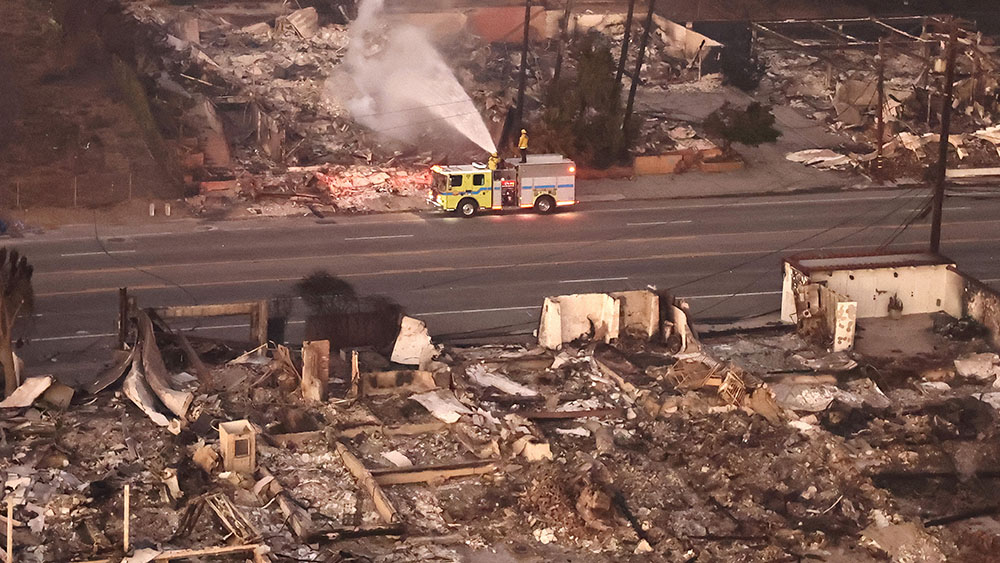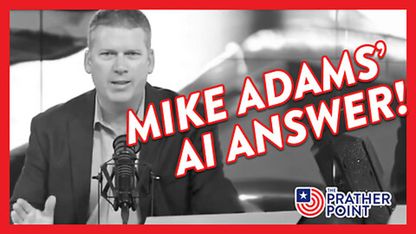
- The Los Angeles Fire Department (LAFD) faces intense scrutiny over its leadership's focus on Diversity, Equity, and Inclusion (DEI) initiatives, which critics claim has compromised its operational effectiveness during recent devastating wildfires.
- Fire Chief Kristin Crowley and her leadership team, known for their emphasis on DEI, have been criticized for neglecting essential firefighting preparedness, such as ensuring water reservoirs are full, which contributed to the department's inability to effectively combat the wildfires.
- The LAFD’s leadership is accused of prioritizing DEI over merit-based qualifications, with the top brass consisting of individuals who represent specific identity markers over operational expertise. This approach has drawn backlash for potentially compromising the department’s ability to handle emergencies.
- Mayor Karen Bass's decision to cut $17.6 million from the LAFD's budget in 2024 has been highlighted as a factor that may have exacerbated the department's struggles during the wildfires, leading to significant loss of life and property.
- The crisis has emphasized the need for competent, experienced leaders in public safety roles who prioritize operational effectiveness over social justice experiments, with a clear message that the primary responsibility of the LAFD is to protect lives and property.
The Los Angeles Fire Department (LAFD) is facing intense scrutiny as wildfires ravage the city, destroying homes, displacing thousands, and claiming lives. Amid the chaos, questions are being raised about the department’s leadership and its focus on Diversity, Equity, and Inclusion (DEI) initiatives over core operational responsibilities. Critics argue that the LAFD’s top brass, led by Fire Chief Kristin Crowley, has prioritized identity politics over public safety, leaving the city vulnerable to disaster.
A leadership crisis in the face of disaster
The LAFD’s leadership team has been under fire for its emphasis on DEI initiatives, which critics say have come at the expense of essential firefighting preparedness. Fire Chief Kristin Crowley, the first openly LGBTQ fire chief in LAFD history, has made DEI a cornerstone of her tenure. Her official bio states that her “highest priority” is “creating, supporting, and promoting a culture that values diversity, inclusion, and equity.” While these goals may sound noble, critics argue that they have overshadowed the department’s primary mission: protecting lives and property from fires.
The consequences of this misplaced focus became tragically clear during the recent wildfires. Actor James Woods, whose Pacific Palisades home was destroyed in the blaze, publicly criticized Crowley for her DEI-centric approach. “When you are the fire chief, this isn’t a social justice exercise that you are in charge of,” Woods said. “This is [about] you getting water to areas that need water because there are fires and hundred-mile-an-hour winds burning houses to the ground.”
Woods recounted how fire trucks arrived at his property but were unable to pump water because the reservoirs were empty. “Somebody forgot to fill all the reservoirs, I guess, with water!” he quipped, highlighting a glaring failure in the department’s preparedness.
Cabal of DEI hires
The LAFD’s leadership team has drawn particular attention for its homogeneity in identity politics. Chief Crowley, who earns a staggering $439,722 annually, is joined by Assistant Chief Kristina Kepner, the first openly lesbian assistant chief, and Kristine Larson, the first black lesbian Equity Bureau Chief. Together, the trio represents a leadership structure that critics argue is more focused on checking DEI boxes than ensuring operational excellence.
Larson, who oversees equity initiatives within the department, has faced backlash for her comments about firefighting capabilities. In a viral video, she dismissed concerns about her ability to rescue larger individuals from fires, saying, “If I have to carry him out of a fire, only about 5% of working firefighters are women.” Her flippant response has been interpreted as emblematic of a leadership culture that prioritizes identity over competence.
Critics argue that the LAFD’s DEI-driven hiring practices have sidelined merit-based qualifications. As one commentator noted, “It’s like the NBA having a DEI program that prioritizes short people. There’s a reason why certain roles require specific physical capabilities.” Firefighting, they argue, is a physically demanding job that often requires the ability to carry heavy equipment and rescue individuals from life-threatening situations. By focusing on gender and sexual orientation over physical strength and experience, the LAFD may be compromising its ability to respond effectively to emergencies.
Consequences of mismanagement
The wildfires have exposed a broader pattern of mismanagement within California’s leadership. Governor Gavin Newsom and Los Angeles Mayor Karen Bass have faced criticism for their handling of the crisis, with some accusing them of neglecting critical infrastructure needs in favor of progressive policies. Mayor Bass, in particular, has come under fire for cutting $17.6 million from the LAFD’s budget in 2024, a decision that may have exacerbated the department’s struggles during the wildfires.
The fallout from the fires has been devastating. Thousands of homes have been destroyed, and more than 20 lives have been lost. Celebrities like James Woods, Spencer Pratt, and Heidi Montag have shared heartbreaking stories of losing their homes, while others have been forced to evacuate as the flames spread. The Hollywood Hills, one of the city’s most iconic neighborhoods, has been particularly hard-hit, with mandatory evacuation orders issued for tens of thousands of residents.
As the fires continue to rage, the LAFD’s leadership is under increasing pressure to explain its priorities. Critics argue that the department’s focus on DEI initiatives has come at the expense of its core mission, leaving the city ill-prepared to handle disasters of this magnitude.
Call for competent leadership
The wildfires have underscored the need for competent, experienced leadership in public safety roles; it's no place for politics. Residents are justifiably outraged that woke, diversity and inclusion goals have come at the expense of operational effectiveness. As James Woods and others have pointed out, the LAFD’s primary responsibility is to protect lives and property—not to serve as a platform for social justice experiments.
The crisis in Los Angeles serves as a cautionary tale for other cities and departments across the country. As DEI initiatives continue to gain traction, it is essential to ensure that they do not undermine the core functions of critical public safety agencies. The people of Los Angeles deserve leaders who prioritize their safety above all else—leaders who are prepared to face the challenges of the present, rather than focusing on the politics of the future.
In the aftermath of this disaster, one thing is clear: the LAFD’s leadership must refocus on its mission. The fires may eventually be extinguished, but the scars they leave behind will serve as a lasting reminder of the consequences of misplaced priorities.
Sources include:
Please contact us for more information.















